
Joy Williams Papers Now Available For Research
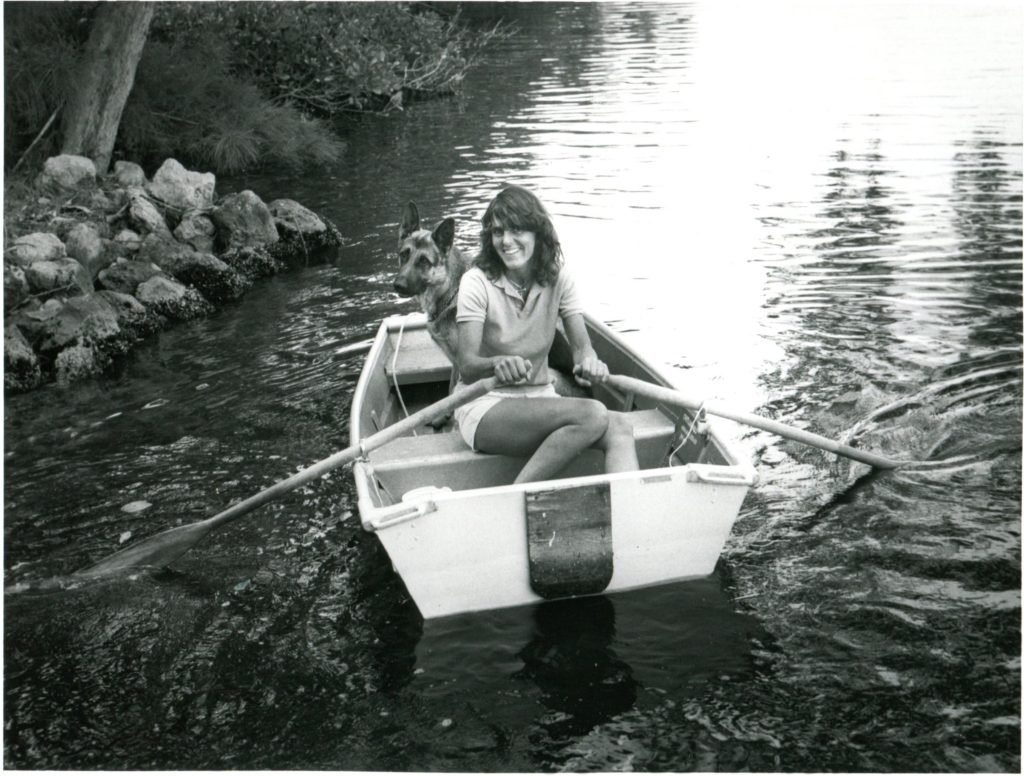
The Julian Edison Department of Special Collections is pleased to announce that the Joy Williams Papers are now available to researchers. The papers, bringing together five decades of materials, including manuscript drafts for Williams’s four novels, five story collections and unpublished work, represent an exciting new addition to the Modern Literature Collection.
Marshall Klimasewiski, Senior Writer in Residence at Washington University, says: “The Joy Williams Papers are, to me, the most exciting addition to our library’s collection in the almost twenty years I’ve been here. That’s partly because, as probably one of the last great American writers never to switch over to email and composing on a computer, her archive is beautifully full of paper, of letters and index card notes and marked-up, typewritten pages; it’s partly because she is someone with a great, dry, dangerous, often anarchic sense of humor, in person as much as on the page, making her great fun to read in any context; and most of all it’s for the obvious reason: because across her novels, short stories and essays she has established herself as simply one of the most original and influential writers of the last half century.”
The Joy Williams Papers were acquired in September 2017, and processed over the winter and spring of 2018 by practicum student Julia Peters, manuscripts and papers processing archivist Sarah Schnuriger, and Bellarmine University student Abigail Dunn. In the meantime, Modern Literature Collection Curator Joel Minor has been fielding requests from researchers and instructors. “We’ve already hosted an open house for the papers and allowed access to a visiting performance artist, before the papers were even processed, and so far I’ve scheduled two scholars and seven class visits for the upcoming semester,” Minor remarked. “People are eager to get into this collection, and for good reason.”
The manuscript pages reveal a process that is both consistent and various throughout the history of Williams’s work. The following scans of early manuscript drafts for “Along the Gulf” (an early title for 1988’s Breaking and Entering) and 2000’s The Quick and the Dead reveal a process in which the typescript is continuously amended, not only with holographs notes and emendations but also a cut-and-paste technique wherein new pieces of typescript are inserted into an early draft version with tape or staples, creating a sort of textual collage, or the impression of a typographical palimpsest.
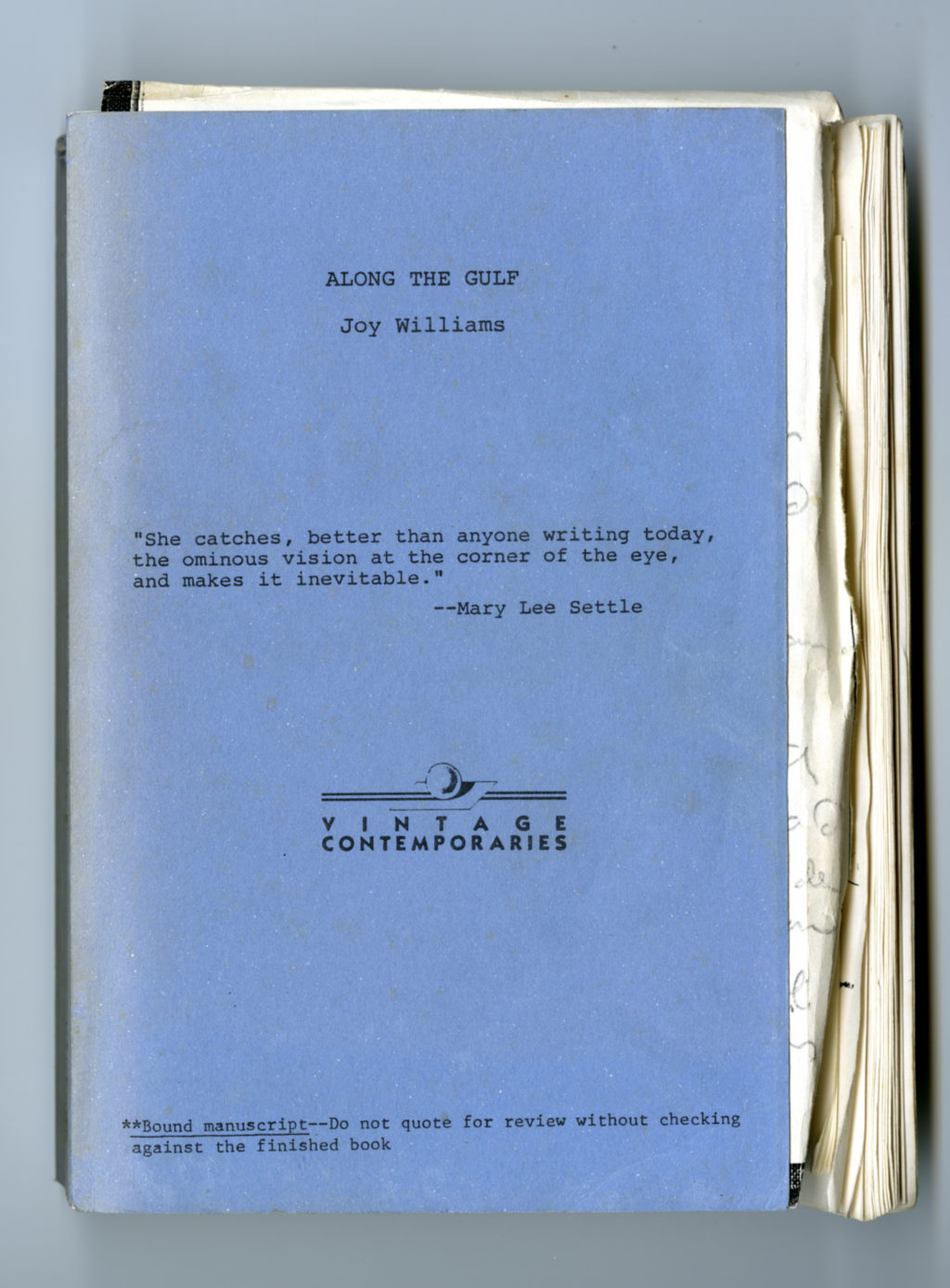
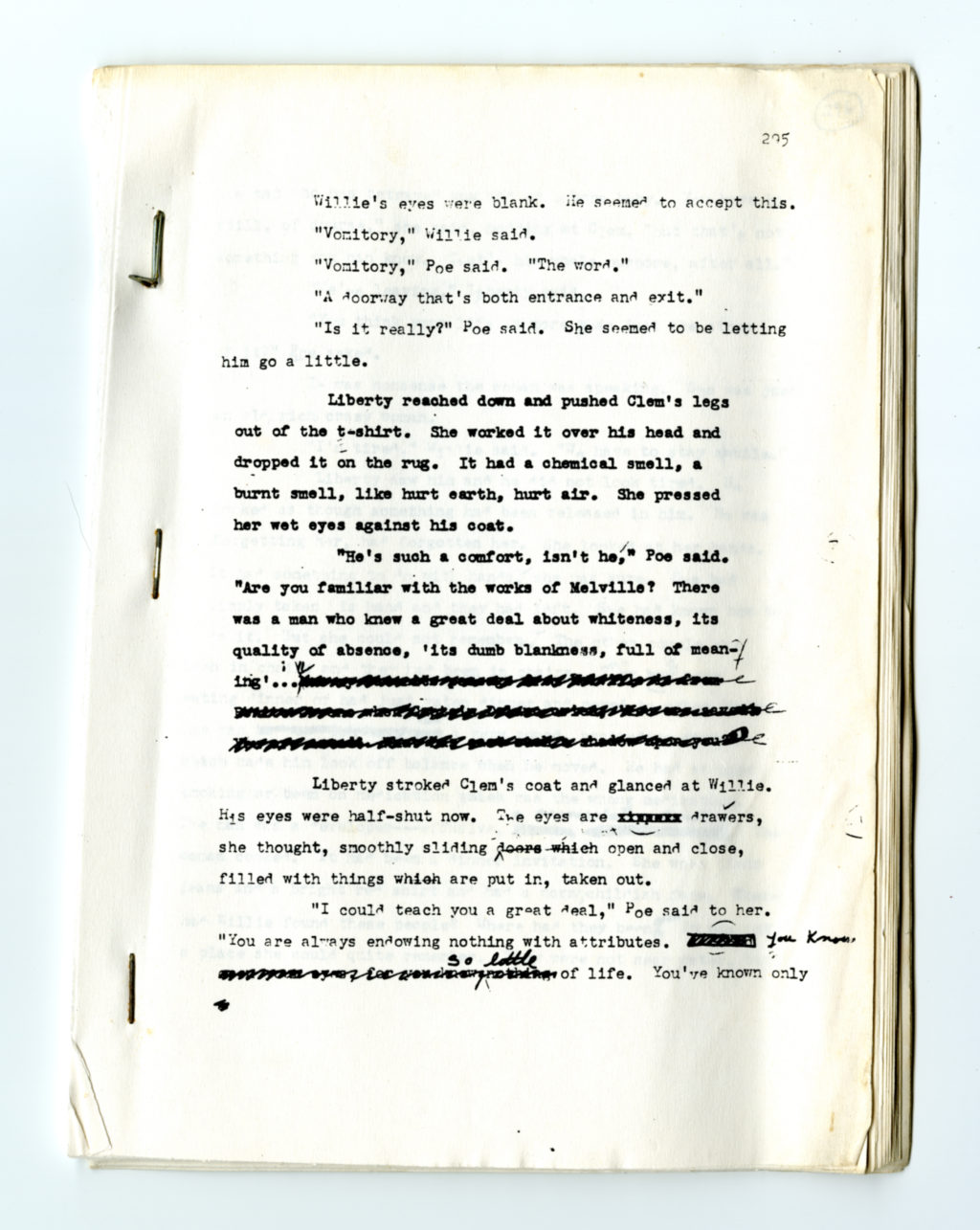
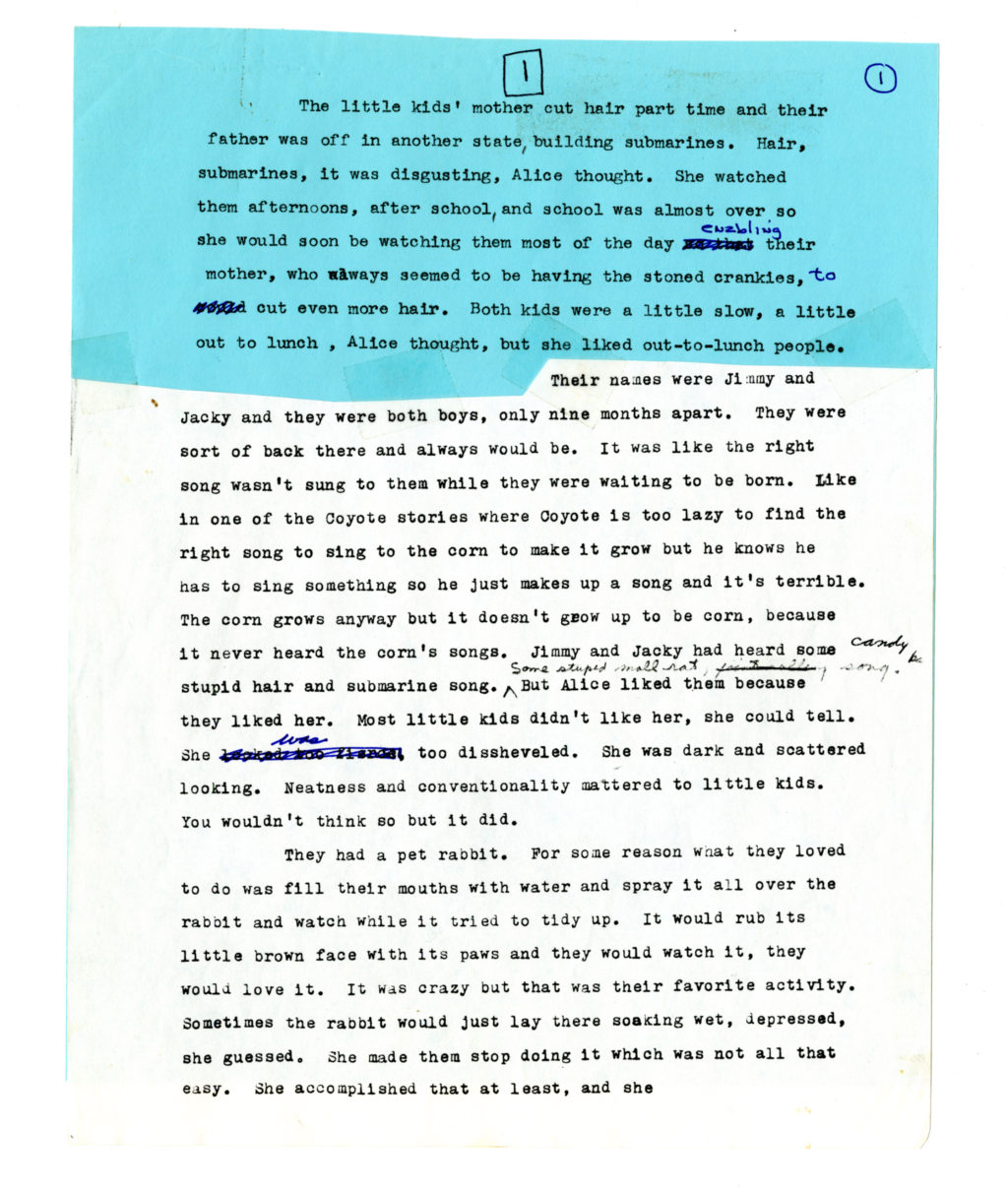
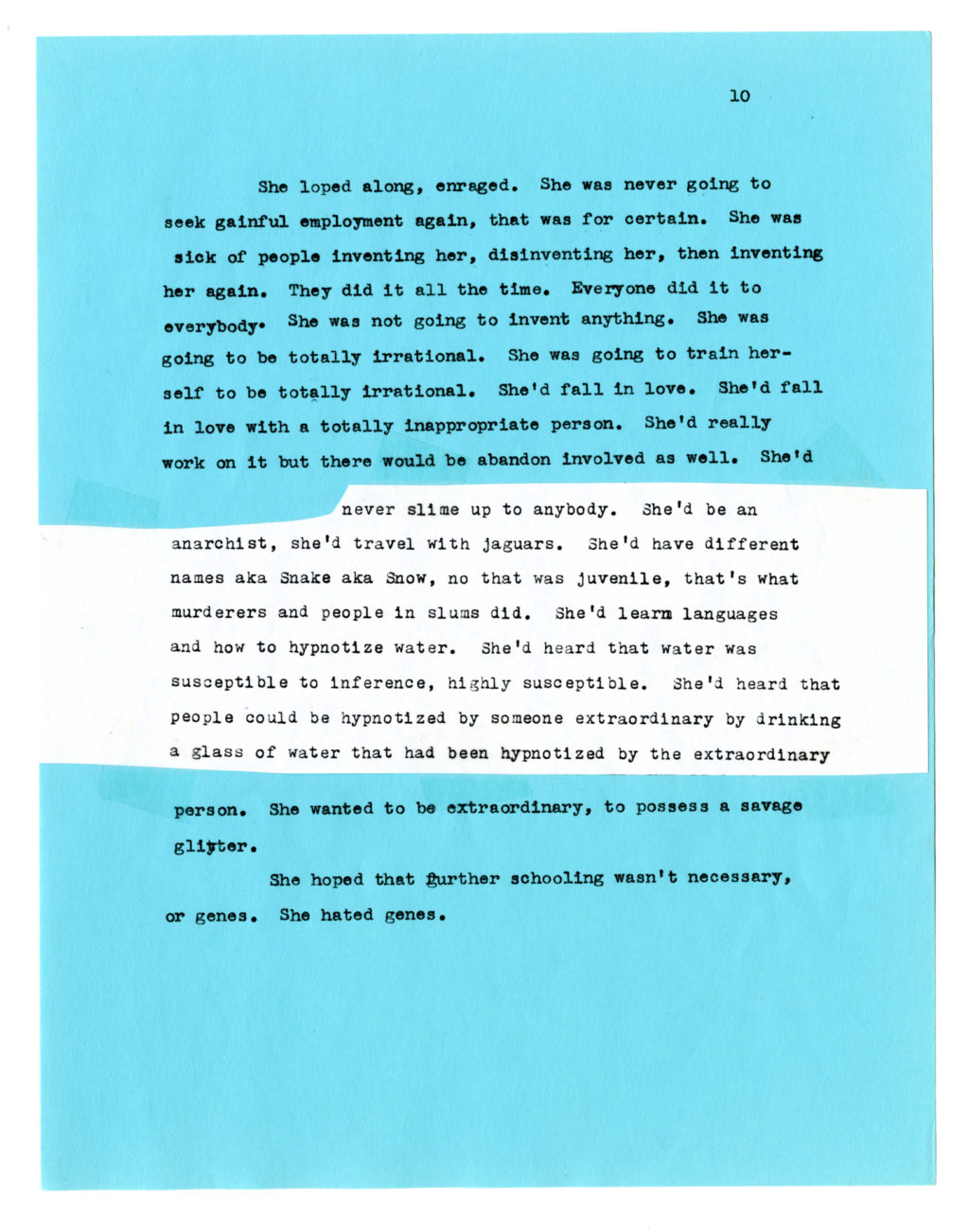
The technique takes another form in a manuscript edition of Williams’s 2001 essay collection, Ill Nature: Rants and Reflections on Humanity and Other Animals, which sees Williams elaborating on versions of essays previously published in various magazines with both holograph edits and cut-and-paste insertions of new typescript material. This manuscript also features one-of-a-kind hand-drawn title page, table of contents, and section headers, by Williams’s daughter Caitlin Hills.
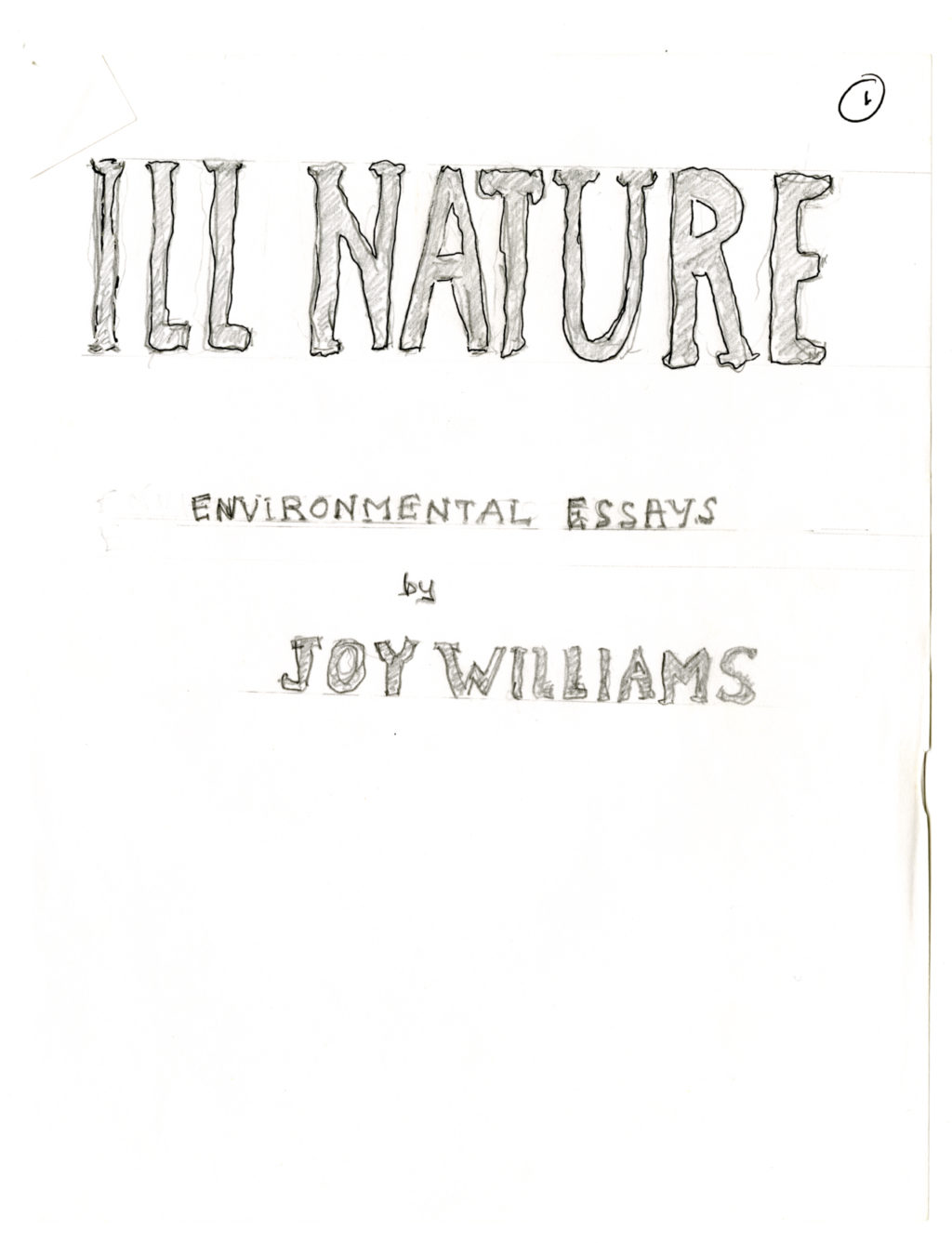
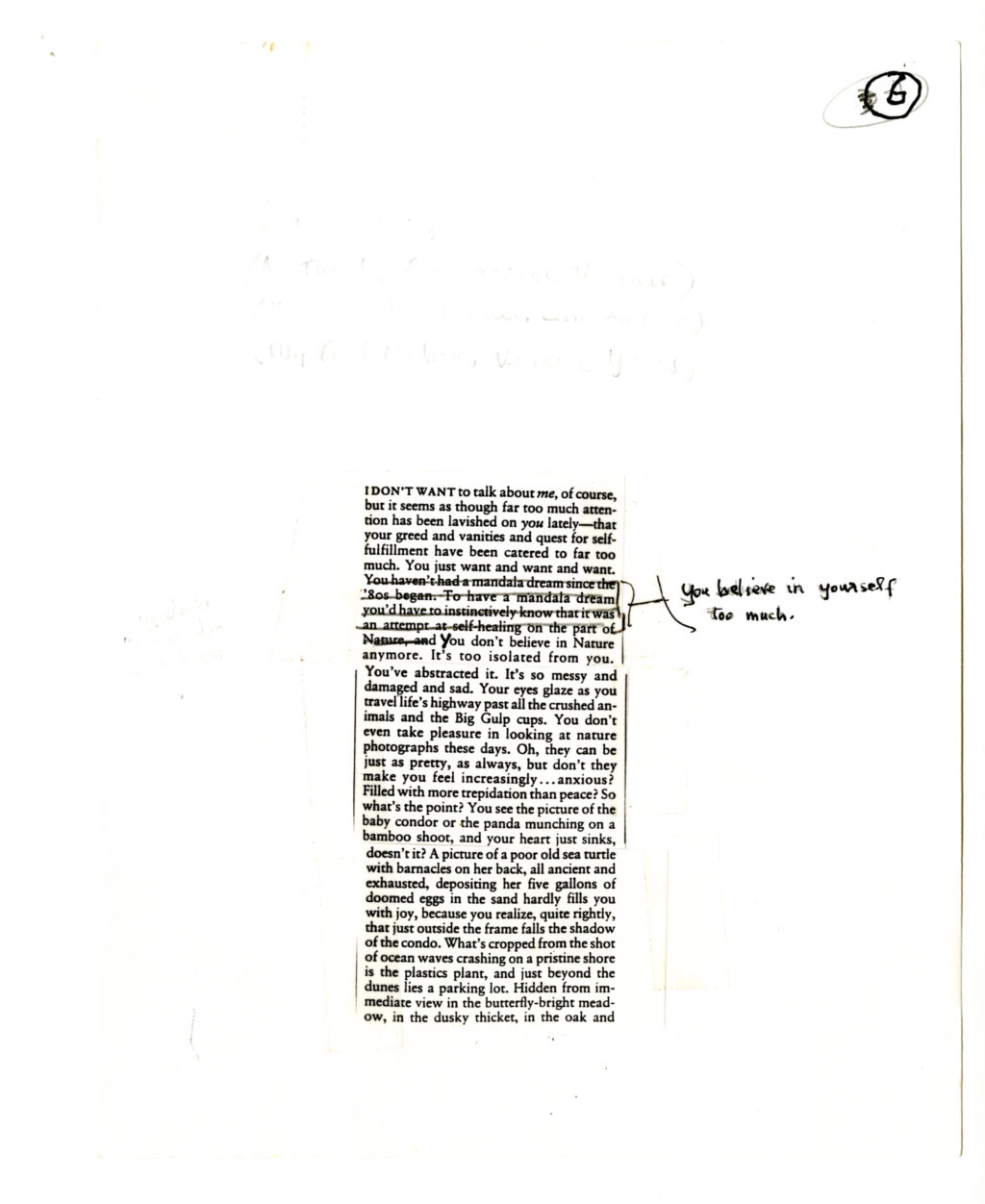
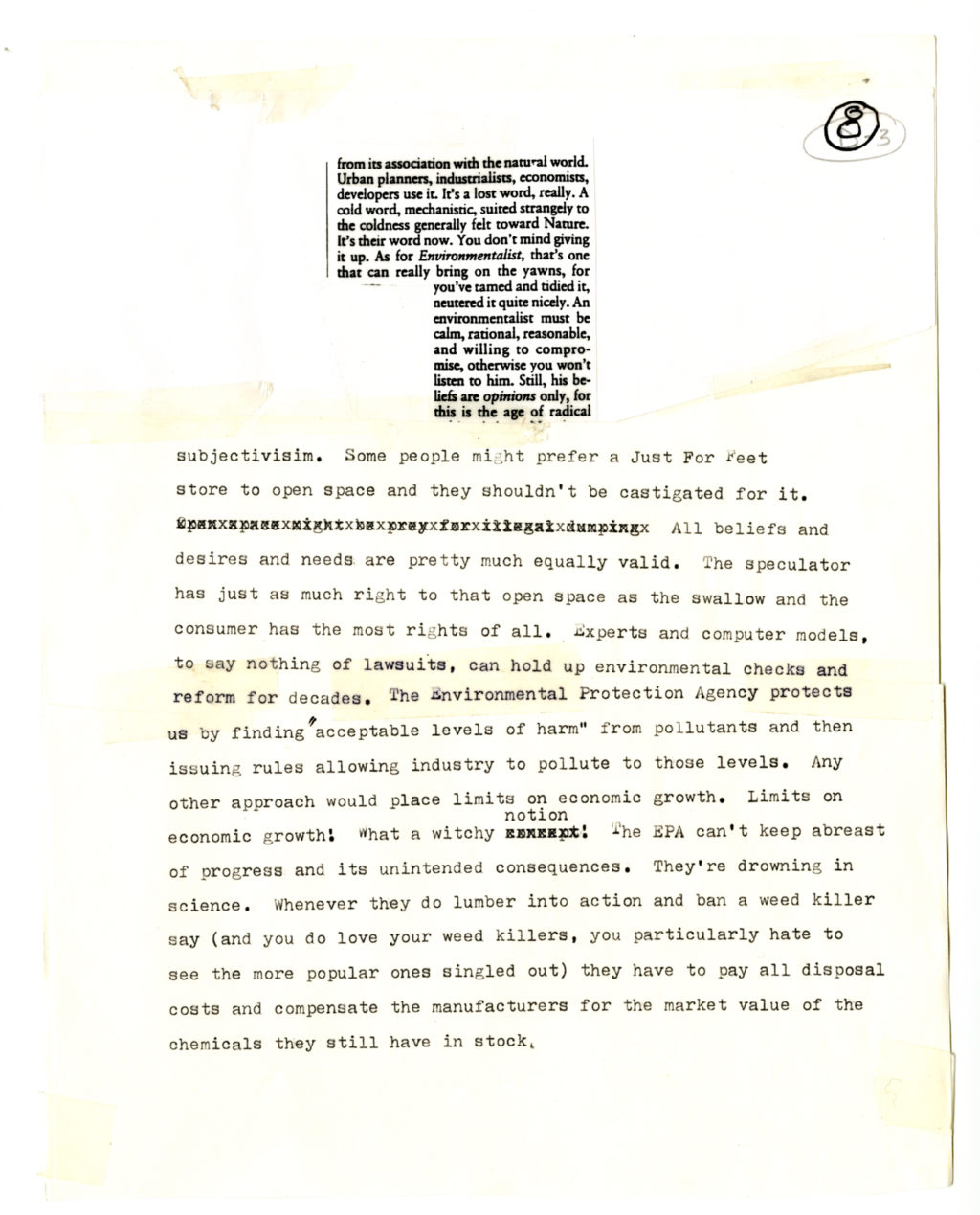
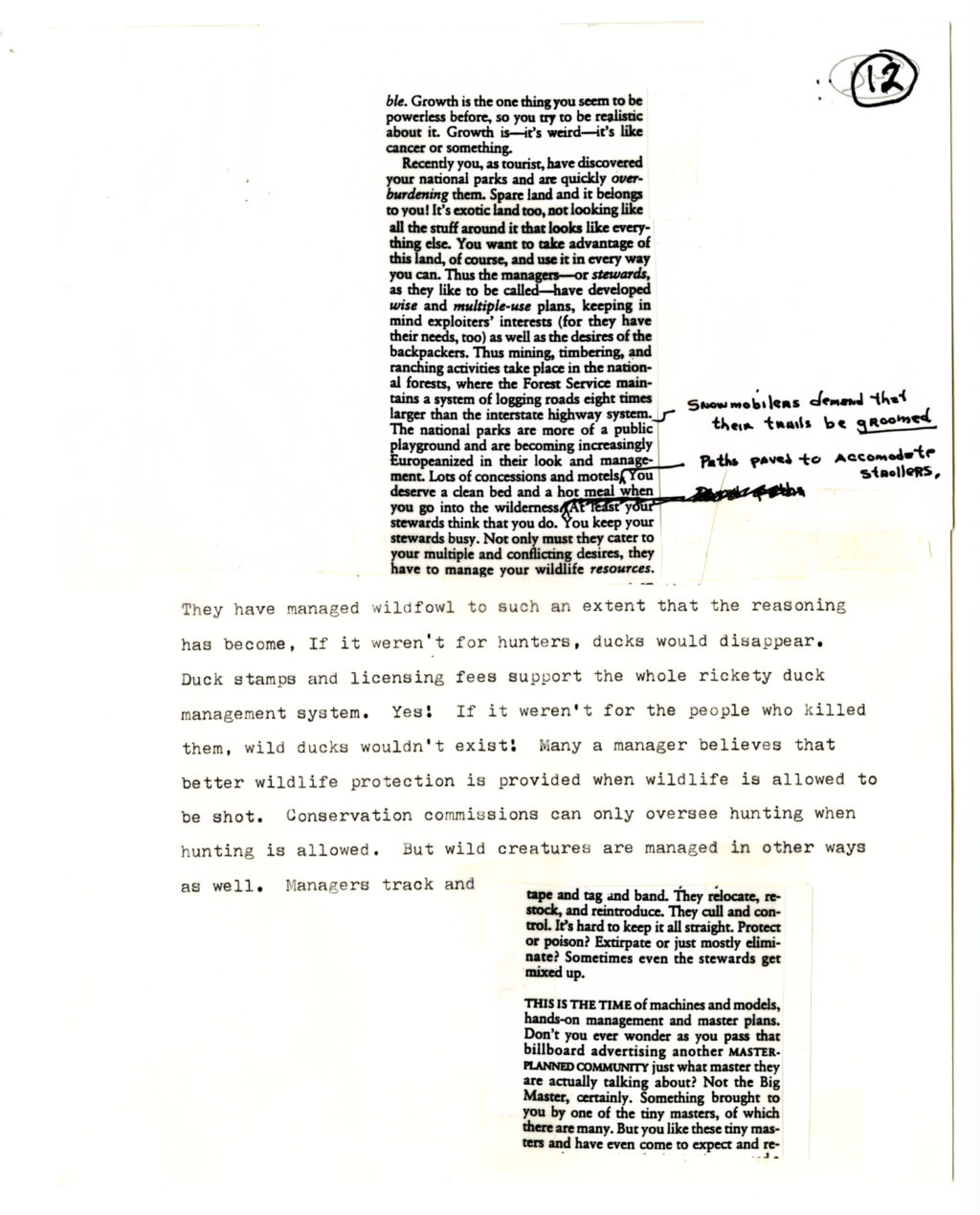
The following pages from Williams’s 2013 story collection 99 Stories of God reveal how a resolutely analog writer works in an increasingly digital world. In these pages, work begins with a typescript draft which is then transcribed into a digital format for Williams’s editor who uses the “track changes” function of a word processor to make comments and suggestions. This version is then printed out, and Williams responds to the suggested edits by hand.
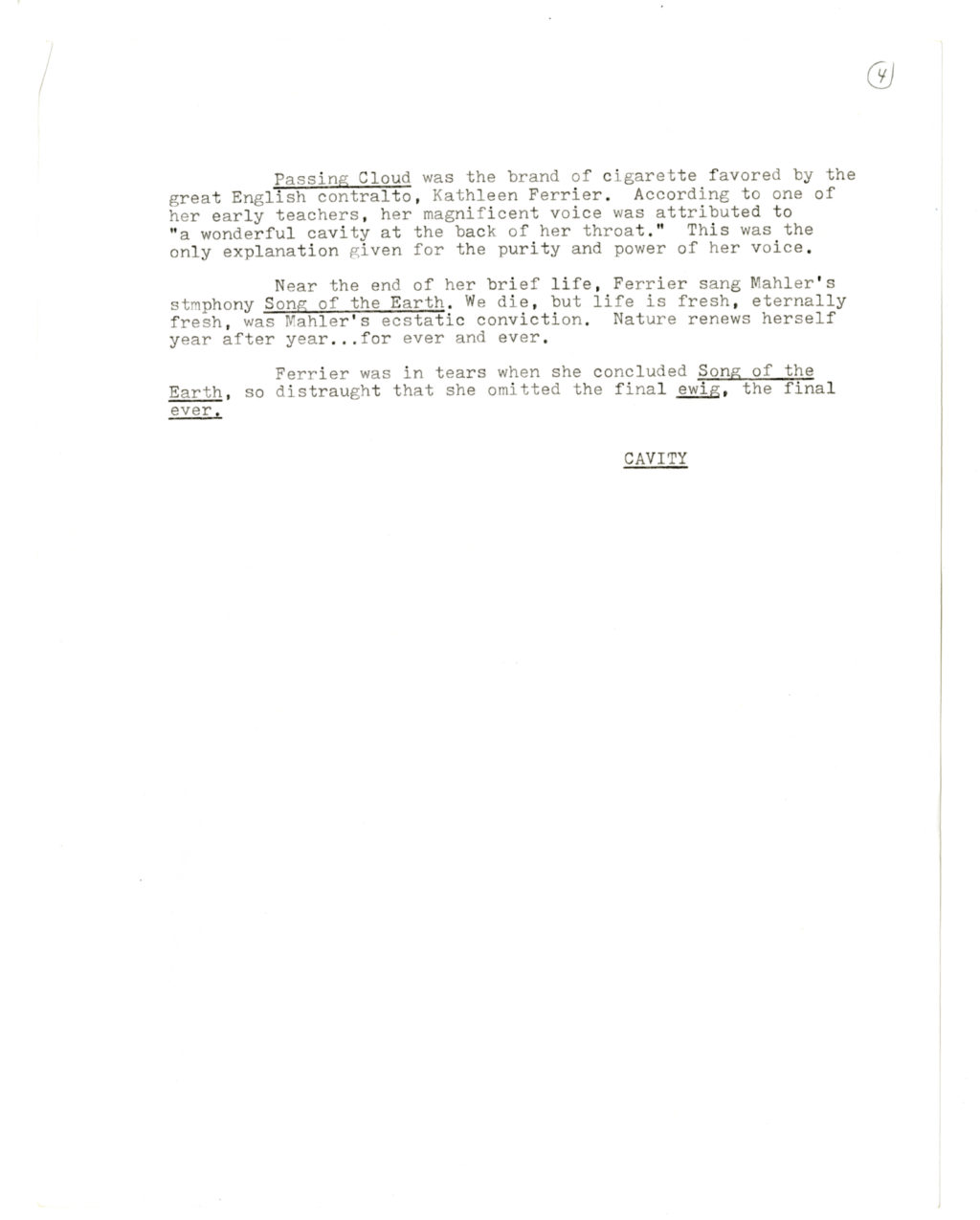
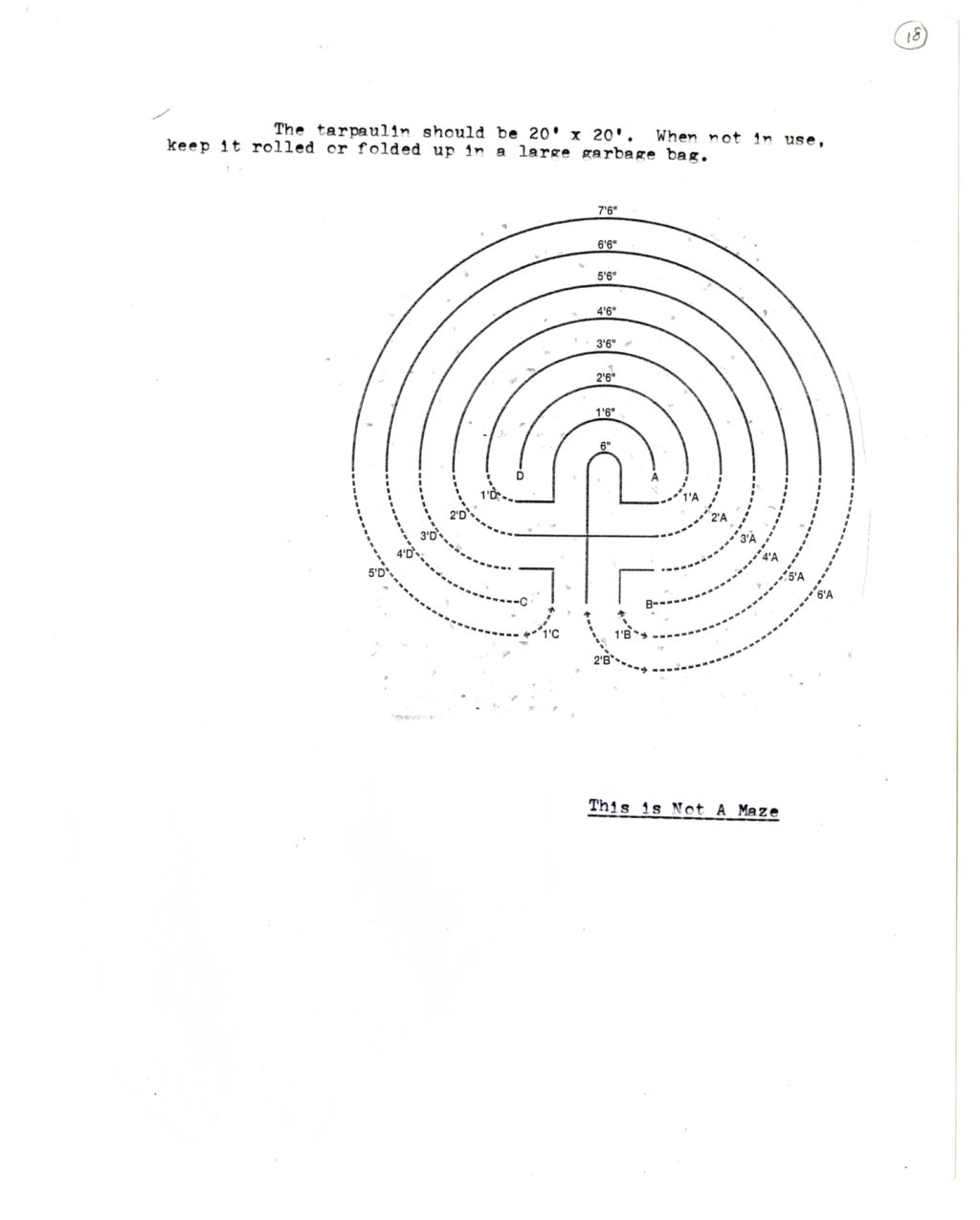
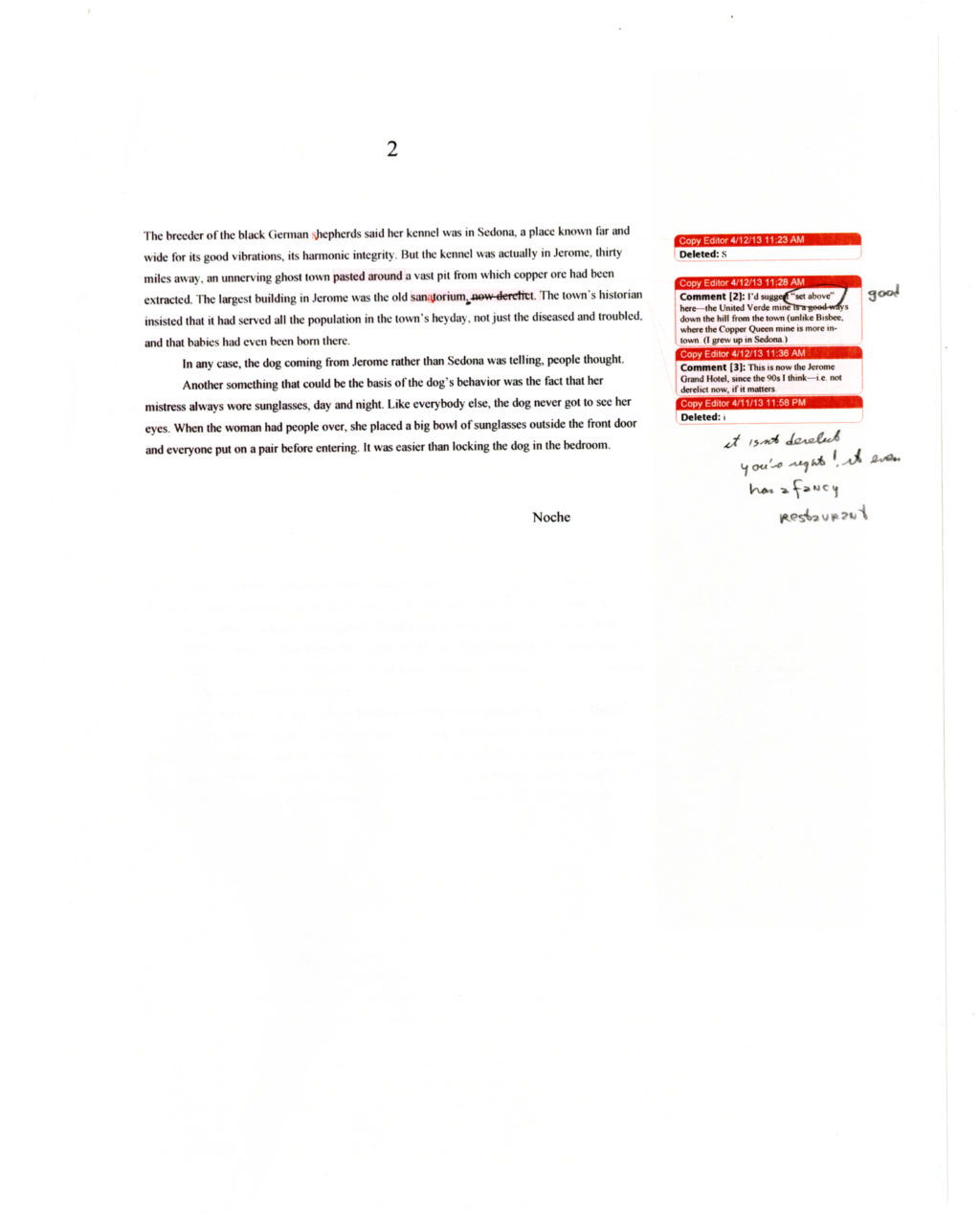
The Joy Williams Papers spans over five decades consists largely of her own manuscript materials, including drafts of book reviews, essays, college work, and short stories, as well as editorial material toward her books including, State of Grace, The Changeling, Taking Care, Breaking and Entering, Escapes, The Quick and the Dead, Ill Nature: Rants and Reflections on Humanity and Other Animals, The Florida Keys: A History and Guide, Honored Guest, 99 Stories of God, and The Visiting Privilege: New and Collected Stories.
Also included is an extensive collection of correspondence primarily with friends, family, editors, students, and colleagues in the literary community including Don DeLillo, Richard Ford, Gary Fisketjon, James Salter, Gordon Lish, Raymond Carver, William H. Gass, and William Gaddis.
Finally, the Williams Papers include a large assortment of materials relating to professional organizations, interviews, literary prize judging, teaching, conferences and readings, research subject files, awards, contracts, education, and photographs. Please see the finding aid to explore further.
To schedule a visit to access the Joy Williams Papers or any other part of the Modern Literature Collection, contact Joel Minor.
